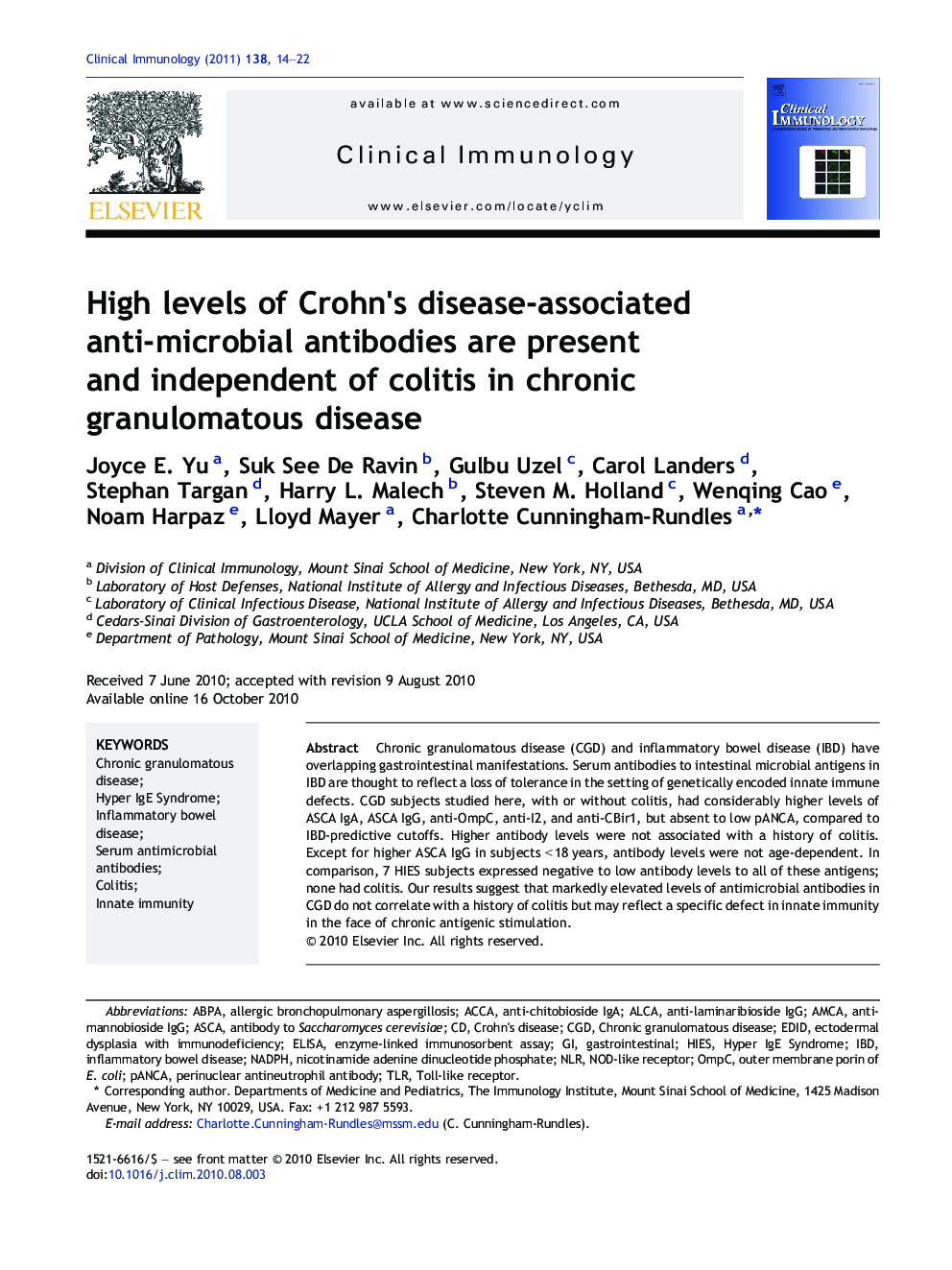| Article ID | Journal | Published Year | Pages | File Type |
|---|---|---|---|---|
| 3257460 | Clinical Immunology | 2011 | 9 Pages |
Chronic granulomatous disease (CGD) and inflammatory bowel disease (IBD) have overlapping gastrointestinal manifestations. Serum antibodies to intestinal microbial antigens in IBD are thought to reflect a loss of tolerance in the setting of genetically encoded innate immune defects. CGD subjects studied here, with or without colitis, had considerably higher levels of ASCA IgA, ASCA IgG, anti-OmpC, anti-I2, and anti-CBir1, but absent to low pANCA, compared to IBD-predictive cutoffs. Higher antibody levels were not associated with a history of colitis. Except for higher ASCA IgG in subjects < 18 years, antibody levels were not age-dependent. In comparison, 7 HIES subjects expressed negative to low antibody levels to all of these antigens; none had colitis. Our results suggest that markedly elevated levels of antimicrobial antibodies in CGD do not correlate with a history of colitis but may reflect a specific defect in innate immunity in the face of chronic antigenic stimulation.
